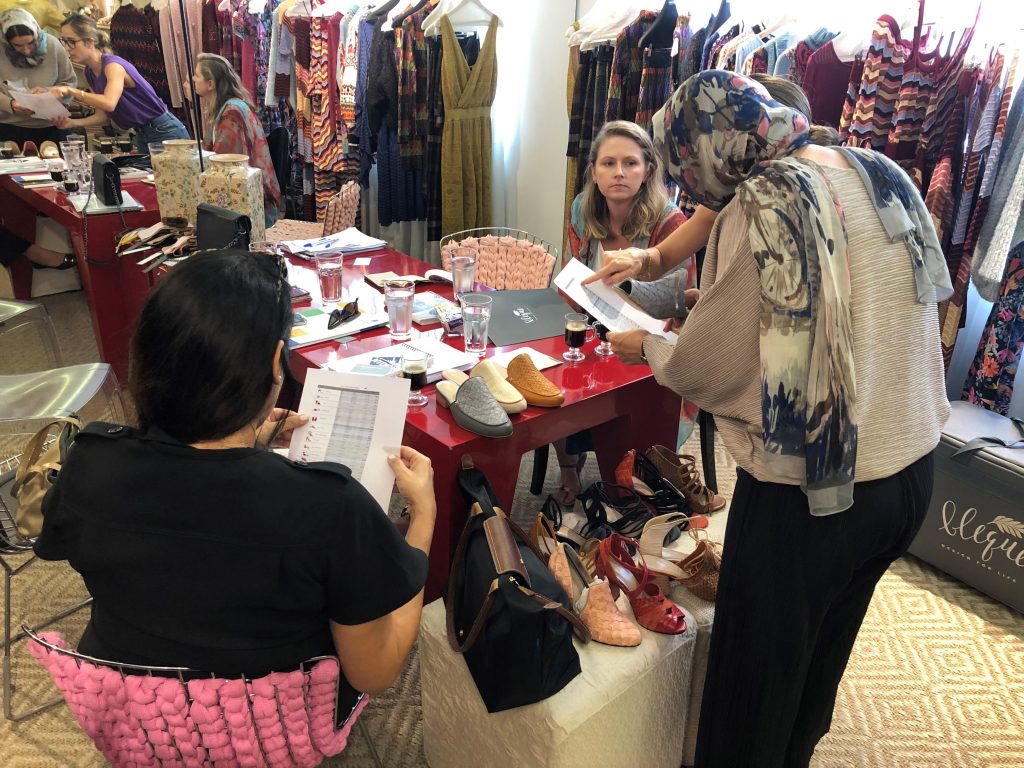São Paulo – Representatives from the Arab group NTDE (National Trading and Developing Establishment) from Dubai, United Arab Emirates, came to Brazil and participated in 15 meetings and visits to shoe factories and distribution centers (photo) in São Paulo and Rio Grande do Sul from December 10 to 14. The visit was conducted by Projeto Comprador Vip of Brazilian Footwear, a program aimed to encourage shoe exportations, which is a partnership between the Brazilian Association of Shoes Industries (Abicalçados) and the Brazilian Trade and Investment Promotion Agency (Apex-Brasil).
The group’s senior management advisor Sabi Behzadi and the marketing director Forough Ahmadi praised the quality of Brazilian products and the competitive price for the Arab market. ‘We expect to work with up to five Brazilian brands,’ said Behzadi in a statement released by Abicalçados. The NTDE Group is specialized in distribution and retail and has over 100 stores of various segments around the Gulf, in Bahrain, Kuwait, Qatar, Saudi Arabia, and United Arab Emirates.
According to Abicalçados, the estimates for the deals generated by the visit are approximately 50 thousand pairs for the next months. ‘It’s a very significant figure, thanks to the group´s potential and the fact that there is a big market to be explored in the region,’ said Abicalçados marketing analyst Ruisa Scheffel, revealing that the average shoes price the company will work with is USD 25, amounting to USD 1.25 million, thanks only to this action.
The shoes association said the Arab market, represented mainly by Saudi Arabia, is considered one of the focus of Brazilian Footwear program for the next two years, 2019-2020. From January to November, that country imported the equivalent to US$ 4 million in Brazilian shoes.
United Arab Emirates are the only Arab country included in the list of the 20 main destinations of Brazilian shoes, figuring in the 19th position, with a total participation of 1%. From January to November, the country bought more than 935 thousand pairs, totalizing USD 9.2 million, a 18.4% drop over the same period in 2017.
Translated by Guilherme Miranda




